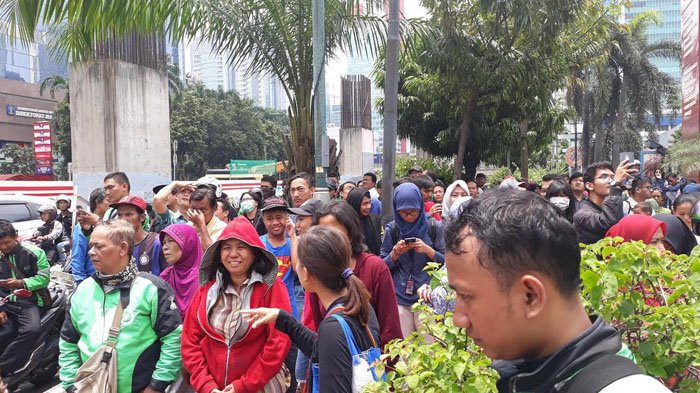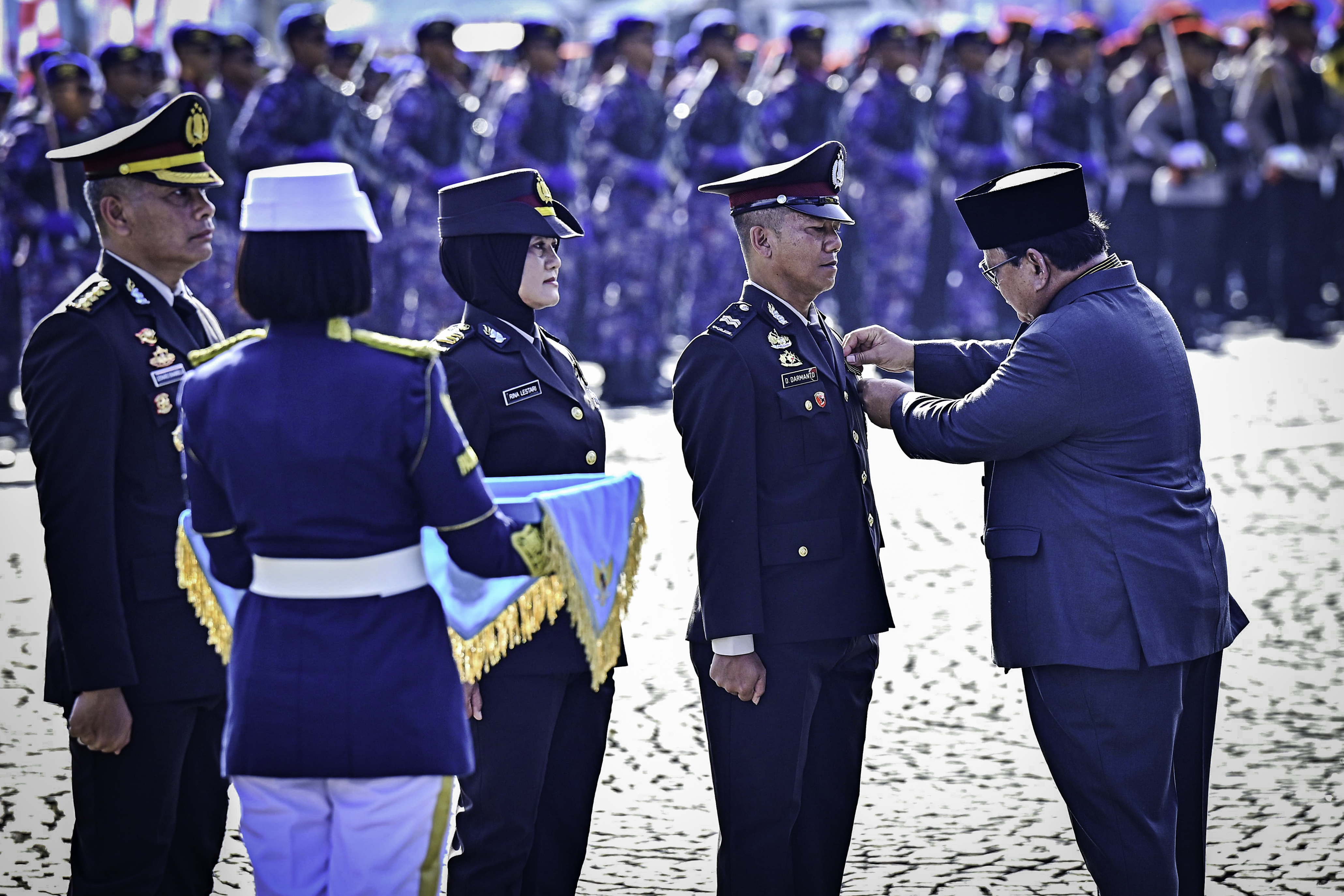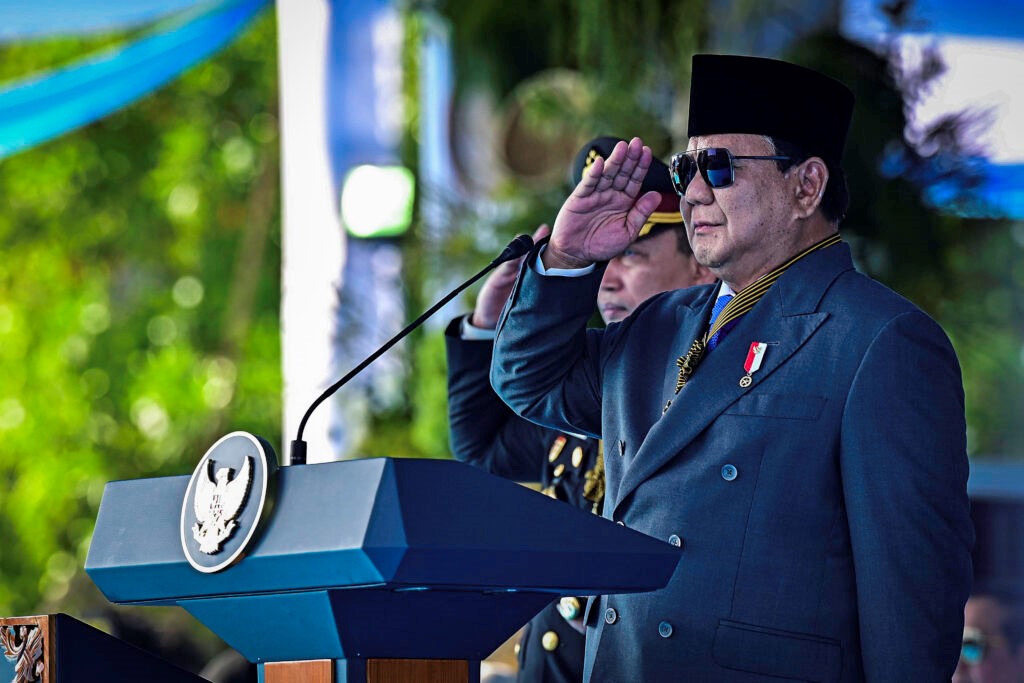Anti-Corruption Attitude Index Increases This Year: BPS
 The Central Statistics Agency (BPS) recorded that the anti-corruption attitude index (IPAK) in Indonesia this year is at 3.70 on a scale of 0 to 5, higher than that of last year at 3.66.
The Central Statistics Agency (BPS) recorded that the anti-corruption attitude index (IPAK) in Indonesia this year is at 3.70 on a scale of 0 to 5, higher than that of last year at 3.66.
The survey is conducted in 33 provinces across the country with a total sample of 9,952 households.
“The IPAK value that is closer to 5 shows that the people have a higher anti-corruption attitude, while the IPAK value that is closer to 0 shows that the people are getting more permissive toward corrupt practices,” Head of the BPS Suhariyanto said in a press conference at the Agency’s Headquarters, in Jakarta, Monday (16/9).
According to him, the IPAK value is determined based on two dimensions: perception and experience. The perception dimension consists of assessment/inputs of anti-corruption attitude in the society, whereas the experience dimension consists of anti-corruption experiences in the society.
The survey shows that the perception dimension for the period of 2012 to 2018 increased gradually. On the contrary, the figure dropped in 2019 indicating the people showed a lack of understanding on anti-corruption attitude.
As for experience dimension, the index fluctuated for the period of 2012 to 2018, while in 2019 the index hit the highest point of 3.65. Similar to the result of experience dimension index, the IPAK also fluctuated in the same period.
The results of the survey are among others:
- Percentage of people who consider it is normal for wife to receive extra money from her husband without questioning the origin of the money increases from 22.52% (2018) to 25.56% (2019);
- Percentage of people who consider it is normal for state civil apparatus to use official vehicles for private purposes increases from 20.74% (2018) to 22.52% (2019);
- Percentage of people who consider it is normal for parents to take their children in political campaign (Regional and General Elections) in order to receive more money increases from 12.61% (2018) to 12.88% (2019).
- Percentage of people who consider it is normal for someone to not tell parents that their siblings take money without permission increases from 2.41% (2018) to 2.76% (2019); and
- Percentage of people who consider it is normal for someone to use property belonging to other household members without permission increases from 4.47% (2018) to 5.15% (2019).
- Percentage of people who consider it is normal to give money/goods to head of community unit (RW), neighborhood unit (RT), or village when a family holds an event decreases from 41.36% (2018) to 40.93% (2019);
- Percentage of people who consider it is normal to give money/goods to community leaders when a family holds an event increases from 46.48% (2018) to 47.81% (2019);
- Percentage of people who consider it is normal to give money/goods to head of community unit (RW), neighborhood unit (RT), or village ahead of religious holiday increases from 29.32% (2018) to 30.23% (2019);
- Percentage of people who consider it is normal to give money/goods to community leaders ahead of religious holiday increases from 39.93% (2018) to 40.92% (2019).
Suhariyanto said that the survey also recorded the people’s experiences on 10 public services which show that:
- Percentage of people who can access public services on their own increases in almost all services;
- Percentage of people who give money/goods higher than the amount determined in the provisions and consider it is normal to do that decreases from 19.61% in 2018 to 15.8% in 2019; and
- 41 percent of people who claimed to be asked to pay fee more than the amount determined in the provisions express their objections (increased by 8.58% than that of last year).
From the results of the survey, the BPS noted that IPAK of urban communities is higher than the IPAK of rural communities.
In terms of education, according to Suhariyanto, higher education makes people more resistant to corruption. The IPAK of high school graduates stood at 4, higher than any lower education levels. Meanwhile, based on age group, people aged 40-59 have higher IPAK than other age groups. (Humas BPS/ES)
Translated by : Rany Anjany Subachrum
Edited by : Mia Medyana Bonaedy








